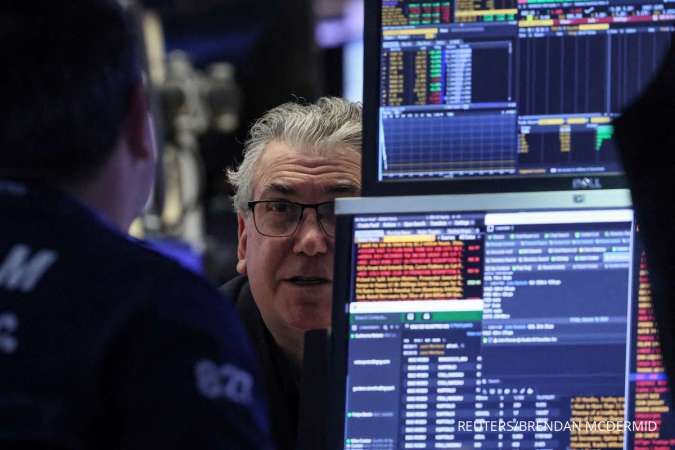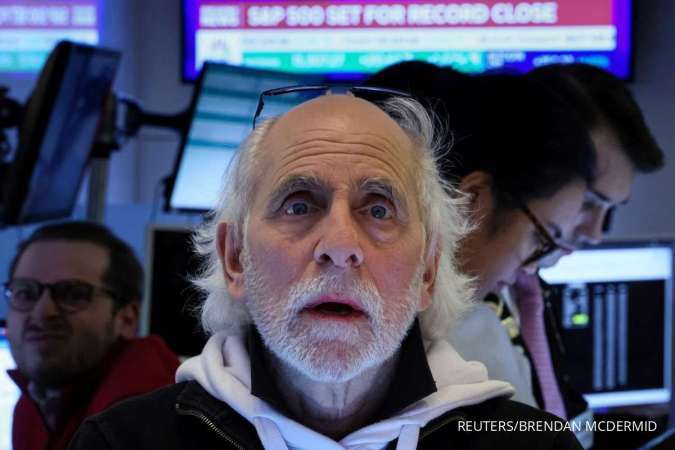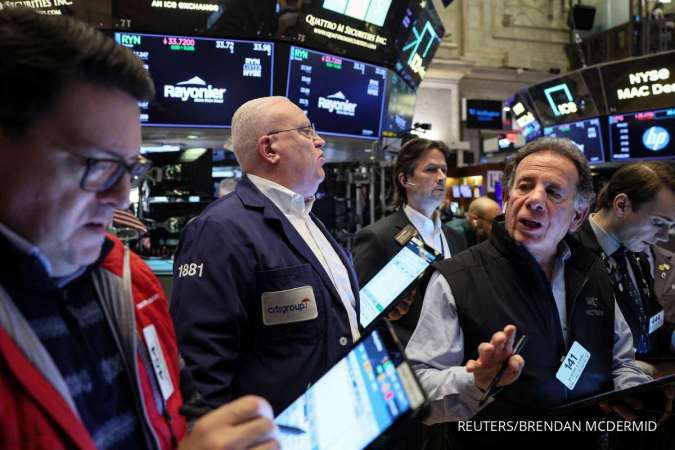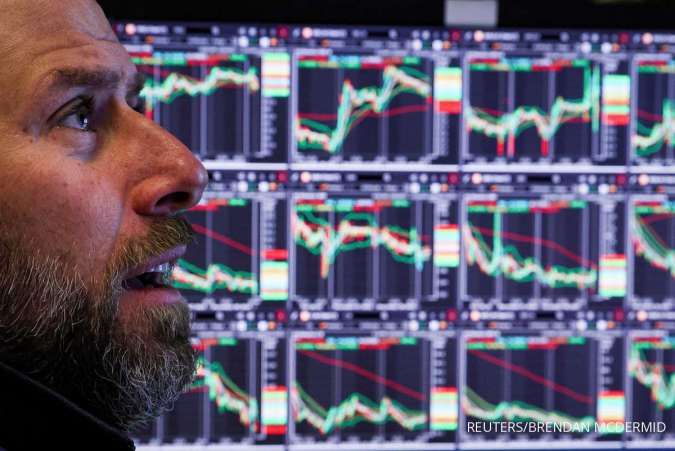KONTAN.CO.ID - NEW YORK, March 8 (Reuters) - Investors fixated on earnings and monetary policy are starting to factor in another variable that could sway markets this year: the 2024 U.S. presidential election. In his State of the Union address on Thursday, U.S. President Joe Biden proposed raising corporate taxes, whereas his opponent, Republican candidate Donald Trump, signed a 2017 law that slashed taxes on companies and the wealthy. Biden also boasted of U.S. economic progress under his tenure. It is difficult to gauge how asset prices could be swayed by these proposals and whatever else the presidential candidates may put on the table in coming months. The winner is likely to face a narrowly divided Congress that would make it difficult to push through legislative changes.
That has not stopped some strategists from assessing how the political outlook could coalesce with other factors that have been driving markets. These include excitement over the business potential of artificial intelligence and shifting expectations of how soon the Federal Reserve might ease monetary policy. The S&P 500 .SPX index is up about 7.4% year-to-date and stands near a record high. "You get a sense (investors) ... have a lot on their plates right now, and politics is starting to come into that," said Paul Christopher, head of global market strategy at Wells Fargo Investment Institute. "Even though everyone knows the candidates, it's going to be a pretty close race so it's very difficult to predict the outcome."
Baca Juga: GLOBAL MARKETS - Stocks Backpedal from Record Highs on US Payrolls, Yields Dip Opinion polls show Biden, 81, and Trump, 77, closely matched. While the U.S. economy is performing better than most high-income countries, Americans overall give Trump better marks in polls for economic issues. Biden on Thursday proposed to increase to 21% a 15% corporate minimum tax on companies reporting over $1 billion in profit that he won as part of 2022 clean energy legislation. He also promised to renew his "billionaire tax" proposal, which would impose a 25% minimum tax on income for Americans with assets of more than $100 million. However, "it's going to be difficult for any tax policy proposal to pass by either side because it's going to come down to party lines," said Larry Tentarelli, chief technical strategist for Blue Chip Daily Trend Report. Regardless of the election outcome, fiscal policy will likely be among the first items that the next administration tackles, Wells Fargo analysts wrote. A Republican sweep would likely mean that the 2017 tax cuts would be extended at the cost of higher inflation, while a Democratic sweep would lead to higher taxes on higher-income households and corporations, the firm noted.
Baca Juga: US STOCKS - Wall Street Slips from Records with Nasdaq Leading Declines ELECTION YEAR TRENDS
The S&P 500 has notched an average gain of 15.5% in years that a president has sought re-election, CFRA data going back to the end of World War II showed. That compares to an overall average annual return of 12.8% in that period. At the same time, election years come with their share of volatility. Analysts at BofA Global Research noted earlier this month that, in previous election years, the Cboe Volatility Index .VIX has risen by an average of 25% from the second quarter to November. Volatility tends to fall after election day with uncertainty removed, the firm said. The bank recently increased its target on the S&P 500 to 5,400, from 5000. October futures on the Cboe Volatility Index .VIX, VXc8 - which encompass options contracts that extend until the middle of the following month - were recently trading some 2.6 points higher than the September futures, suggesting investor wariness regarding election-related market swings. Historical trends may favor Biden as well. Since the emergence of Super Tuesday in 1976, year-to-date gains in the S&P 500 ahead of the primary have coincided with the president's political party winning the election 80% of the time, LPL Financial data showed. The firm noted, however, that the S&P 500 has lately been rising along with Trump's standing in national polls. "This economy is doing well - and we will see whether Biden gets credit for it," said Jeff Buchbinder, chief equity strategist for LPL Financial.
Baca Juga: Stocks at Record Highs as US Data Leaves June Fed Cut Bet Intact EYES ON CPI
The market also had to digest plenty of near-term economic data to gauge the Fed's monetary policy trajectory. U.S. job growth accelerated in February, Labor Department data showed Friday, but a rise in the unemployment rate and moderation in wage gains kept on the table an anticipated rate cut in June.
Investors are also awaiting U.S. consumer price data on March 12 for further clarity on whether inflation has eased enough for policymakers to lower borrowing costs in coming months. "Continued normalization in wages coupled with a weak CPI print next week could increase the FOMC's confidence that inflation is on track to returning to target, potentially moving forward the prospects of rate cuts," wrote Jeff Schulze, head of economic and market strategy at ClearBridge Investments.
By David Randall (Reporting by David Randall; Additional reporting by Saqib Iqbal Ahmed; Editing by Ira Iosebashvili and Richard Chang)






